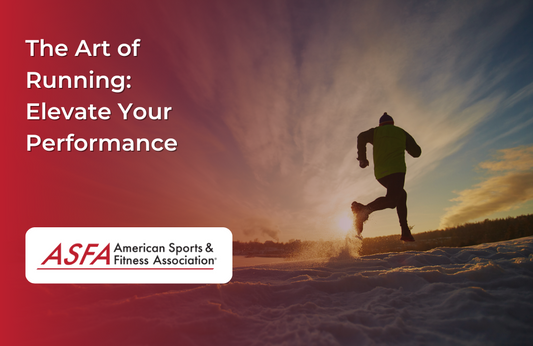To be 'amenorrheic' is to have your period stop. This can happen for a number of reasons, including stress, illness and hormonal changes. But there's another type of amenorrhea that you might not know about: athletic amenorrhea. It's most common in women who exercise intensely and have low body fat, but it can affect anyone who has very low energy levels or nutrition from food that makes it difficult for their body to produce the hormones needed for menstruation. So what does all this mean for me? Should I be concerned about developing this condition? What can I do about it? Let's break it down!
Amenorrhea is the absence of menstrual periods, which means it's not just a condition that affects women with their periods.
Amenorrhea is the absence of menstrual periods, which means it's not just a condition that affects women with their periods.
Amenorrhea can affect women who have never had periods before. This can be caused by many things, including:
- Eating disorders (anorexia nervosa or bulimia)
- Dehydration from excessive exercise or lack of water intake in hot weather conditions
- Extreme stress on your body from intense training regimens
Athletic amenorrhea can occur when a woman's body isn't getting enough nutrients and calories to support the hormone production needed for menstruation.
Athletic amenorrhea occurs when a woman's body isn't getting enough nutrients and calories to support the hormone production needed for menstruation. The hypothalamus, pituitary gland and ovaries are all part of the endocrine system that produces hormones. The hypothalamus produces gonadotropin-releasing hormone (GnRH), which tells your pituitary gland to release follicle-stimulating hormone (FSH) and luteinizing hormone (LH). This causes ovarian follicles in your ovaries to develop eggs that can be released during ovulation. If you don't have enough nutrients or calories coming in each day due to exercising too much without eating enough food, it can affect these processes so they don't work properly anymore--and this is what causes you not having any periods!
Women who exercise intensely and have low body fat are at a higher risk for developing athletic amenorrhea.
Athletic amenorrhea is a condition that occurs when you exercise intensely, have low body fat and do not menstruate. It's not just athletes who are at risk for developing athletic amenorrhea; women who have had eating disorders or who have anorexia nervosa may also experience this condition.
The more intense your exercise routine, the higher your risk of developing athletic amenorrhea. If you work out regularly and are very lean (have less than 15% body fat), then your chances of having this condition increase even more dramatically. The reason why this happens is still unclear but researchers believe it has something to do with how much energy is needed by our bodies during exercise--especially if that activity requires us to use large muscles such as those found in our legs and core area (e.g., running).
The first symptom of athletic amenorrhea is irregular or no periods at all.
The first symptom of athletic amenorrhea is irregular or no periods at all.
Amenorrhea is when you don't have a period for three consecutive months, so if you're an athlete and haven't had a period in that time frame, it could be an indication that something is wrong with your body. It may also signal an eating disorder like anorexia nervosa or bulimia nervosa.
Athletes often experience menstrual irregularities because they're exercising too much--excessive exercise can cause low estrogen levels in women which stops ovulation from occurring normally and results in missed periods.
Other signs include fatigue, loss of bone mass, reduced strength and endurance, and osteopenia.
Other signs include fatigue, loss of bone mass, reduced strength and endurance, and osteopenia.
Athletic amenorrhea is a temporary condition that occurs when you don't get enough nutrients from your diet or from exercising too much. If you are underweight and not eating enough calories from foods or drinks containing carbohydrates or protein every day for at least three months in a row, then this can lead to athletic amenorrhea.
If untreated, athletic amenorrhea can lead to irreversible physical changes and infertility.
Athletic amenorrhea can lead to infertility, which is when a woman cannot become pregnant. This happens because of the low levels of estrogen in her body. This hormone helps the uterus build a lining for an embryo and maintain it during pregnancy if she does get pregnant.
If untreated, athletic amenorrhea can also cause permanent bone loss and osteopenia (a condition that makes bones more brittle and prone to fracture). Osteopenia may start in adolescence or early adulthood but will worsen over time if it's not treated properly by increasing weight-bearing exercise or taking calcium supplements
Treatment includes eating more calories, being more active in your free time, getting enough sleep and reducing stress levels.
Treatment includes eating more calories, being more active in your free time, getting enough sleep and reducing stress levels. You can try these tips to help you manage your stress:
- Take a walk around the block during lunch break or after work. The fresh air will clear your head and give you time to think about things that are bothering you.
- Listen to music while doing chores around the house--it's a great way to get through boring tasks!
- Call up an old friend who makes you laugh (and doesn't make fun of how much weight they've gained).
You can avoid this serious condition by making sure you're getting enough nutrients as well as rest and relaxation!
Athletic amenorrhea is a serious condition that can lead to osteoporosis, low bone density and other health problems. If you're an athlete who is experiencing symptoms of this condition, it's important to be aware of what it is and how you can avoid it in the future. The first step toward avoiding athletic amenorrhea is making sure your eating habits are good enough so that your body gets the nutrients needed for proper functioning and healthy bones. You should also try increasing your activity level outside of practice time; exercising regularly helps prevent muscle loss while also reducing stress levels which may contribute to the onset of this disorder as well as other problems such as depression or anxiety disorders
Conclusion
In order to avoid developing athletic amenorrhea, you need to make sure that your body is getting enough nutrients and calories. This means eating a balanced diet that includes plenty of fruits and vegetables along with protein sources like lean meats or beans. You should also be sure not to skip meals as this can lead to low blood sugar levels which can trigger symptoms like fatigue or headaches when exercising intensely.




